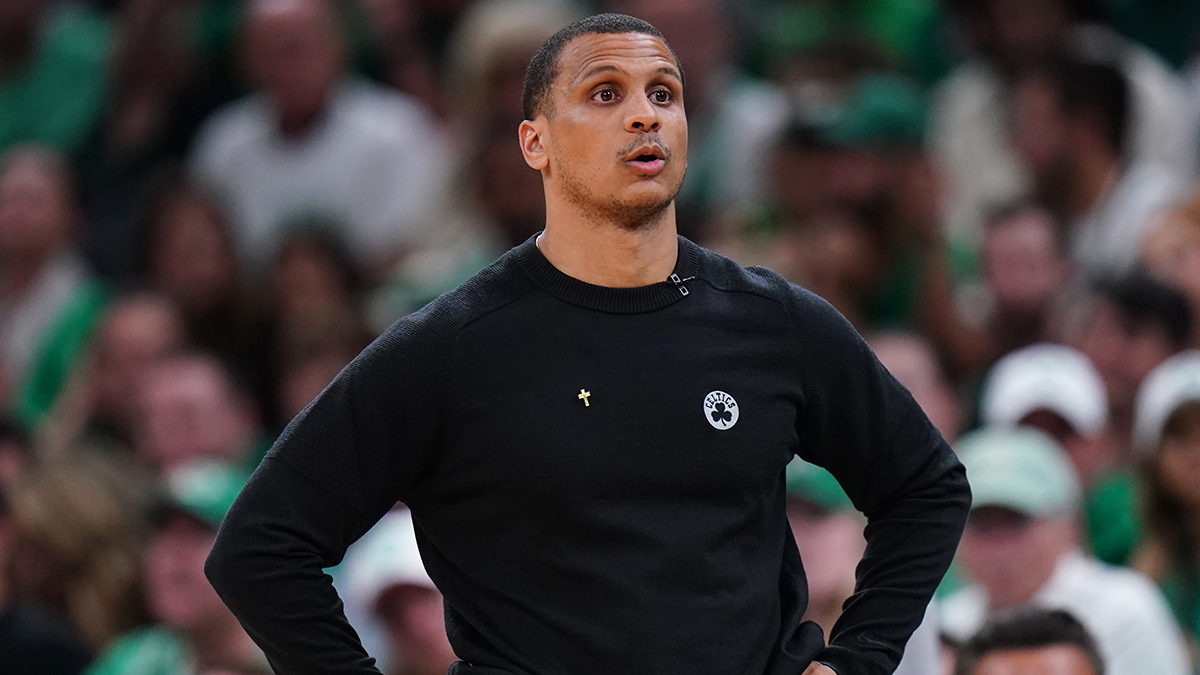Tomase: How will Red Sox fill E-Rod's void in starting rotation? originally appeared on NBC Sports Boston
WATCH ANYTIME FOR FREE
Stream NBC10 Boston news for free, 24/7, wherever you are. |
Left-hander Eduardo Rodriguez's reported decision to join the Detroit Tigers may only elicit shrugs from Red Sox fans who grew tired of his inconsistency, but it's a legitimate loss that highlights the challenges facing Chaim Bloom as he attempts to upgrade his rotation.
Let's dive into what Rodriguez's departure tells us about the present and future of the rotation, as well as where Bloom may turn next.First, E-Rod's deal. Per multiple outlets (The Athletic had it first), he has reached agreement on a five-year contract worth as much as $80 million. The contract is more than fair, given the pitcher's age (28) and pedigree (former 19-game winner).
Get updates on what's happening in Boston to your inbox. Sign up for our News Headlines newsletter.
That the Tigers were willing to pay it and the Red Sox apparently weren't doesn't bode well for Boston's intentions to spend this winter, though it's only one data point. But the fact is, if Rodriguez pitched for someone else, he'd be exactly the kind of player the Red Sox were targeting.
Tomase: Key pitching prospect you may have overlooked could return in 2022
His surface numbers looked pedestrian last year (4.74 ERA), but he set career-marks in strikeout rate (27.4 percent) and walk rate (7 percent). Few pitchers were better at limiting hard contact, but few teams were worse at converting those dribblers into outs than Boston. Rodriguez's expected ERA was a career-best 3.50, but he allowed a .364 average on balls in play, about 70 points higher than league average.
NBC Sports
That's a lot of numbers, but here's the gist -- Rodriguez pitched much better than his results, undone in part by weak infield defense. The Tigers see a pitcher who misses bats in the strike zone, induces soft contact, and throws strikes. That's worth $80 million, and he may well end up being a bargain.
The fact that Rodriguez signed so quickly and reasonably suggests the Red Sox never made a serious effort to keep him, otherwise the Rodriguez camp at the very least could have leveraged them into a better contract. The Red Sox reportedly made multi-year offers during the season and again this month, but Rodriguez was clearly unmoved by their efforts, and so now the obvious question is how the Red Sox fill the giant hole in their rotation.
Right now they have three starters under contract: All-Star right-hander Nathan Eovaldi, recovering ace Chris Sale, and right-hander Nick Pivetta. The easiest solution would be to simply shift a pair of high-leverage relievers, Tanner Houck and Garrett Whitlock, from the bullpen, but that creates its own problems.
Given the trend to pull starters before they can face an order for the third time, having multi-inning power arms available in the sixth is now a necessity more than a luxury. We saw as much in 2021, when Whitlock and Houck made massive contributions to a 92-win season.
Ideally, the Red Sox would keep one or both in the bullpen. But without Rodriguez, they're probably going to have to let the good friends fight it out for a rotation spot this spring.
That leaves free agency and the trade market. That the Red Sox didn't want to pay Rodriguez suggests they're probably not going to find $80-plus million for another free agent. The best arm available, for instance, might be Mets right-hander Marcus Stroman, but he's a groundball pitcher who could encounter some of the same difficulties playing in front of Boston's shoddy infield defense.
Another option is AL Cy Young favorite Robbie Ray, but that award alone should create the bidding war the Red Sox seem keen on avoiding.
If they do go the free agency route, they've got some extra money now that Rodriguez and his $18.4 million qualifying offer is off the books. Their payroll sits in the $185 million range, about $25 million below the $210 luxury tax threshold that could change in a new CBA. Considering the going rate for top-flight starters, unless they're willing to spend well beyond the luxury tax, signing one legit arm could take them virtually to $210M.
More likely, then, is that they examine the trade market. We've already laid out how the rebuilding A's, in particular, could be worthwhile partners, with right-handers Chris Bassitt and Frankie Montas particularly intriguing possibilities. Bassitt has one year of arbitration eligibility remaining, while Montas has two.
The Marlins are also reportedly considering dealing from a surplus of young pitching, with durable All-Star right-hander Sandy Alcantara the big fish, so to speak.
The easiest move for the Red Sox would've been keeping Rodriguez. Maintaining the status quo wouldn't have moved the needle on the buzz-o-meter, and it probably would've been cause for some grumbling, but losing E-Rod may teach Red Sox fans an age-old lesson best articulated by '80s hair band Cinderella -- you don't know what you've got 'til it's gone.



